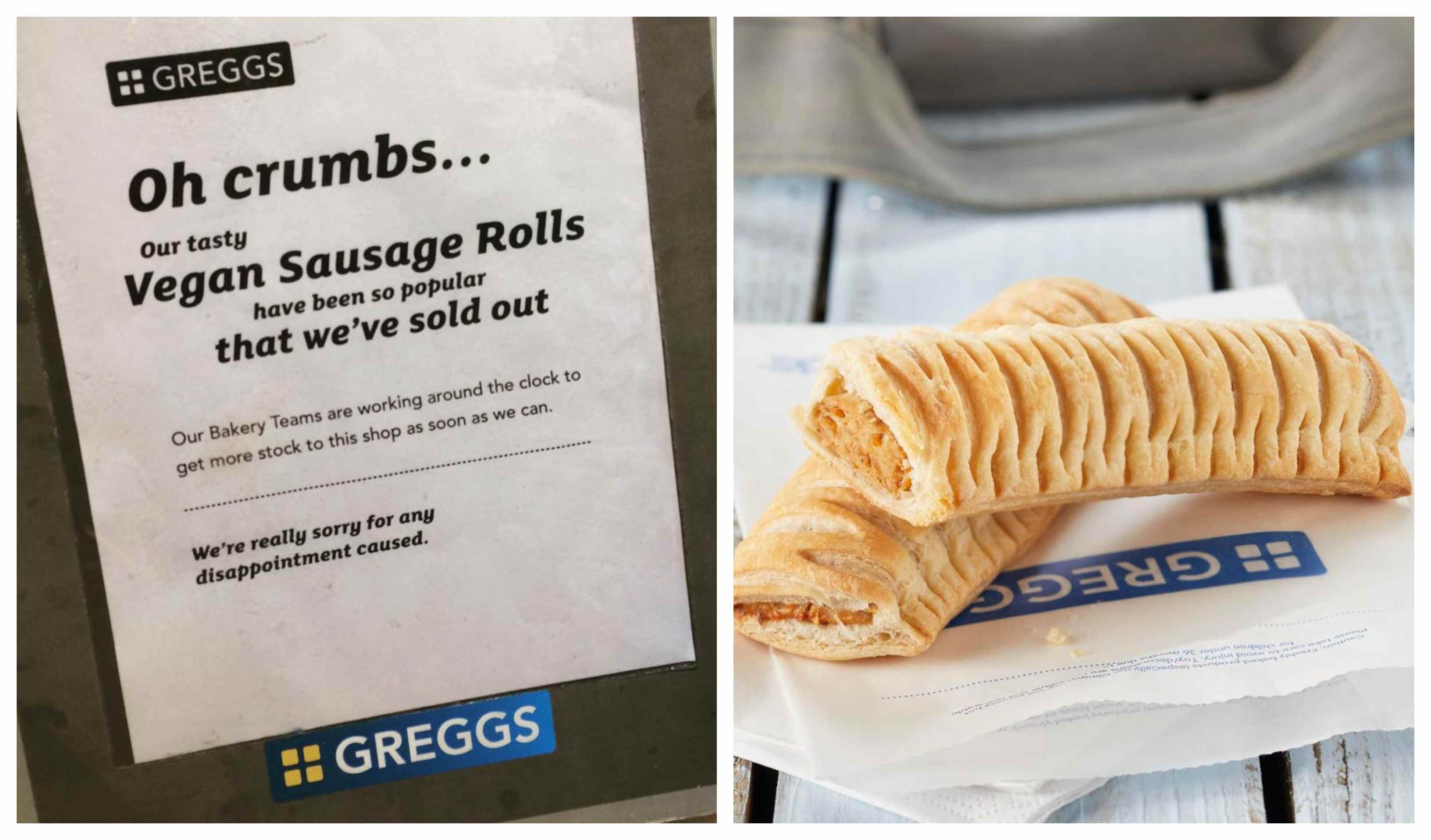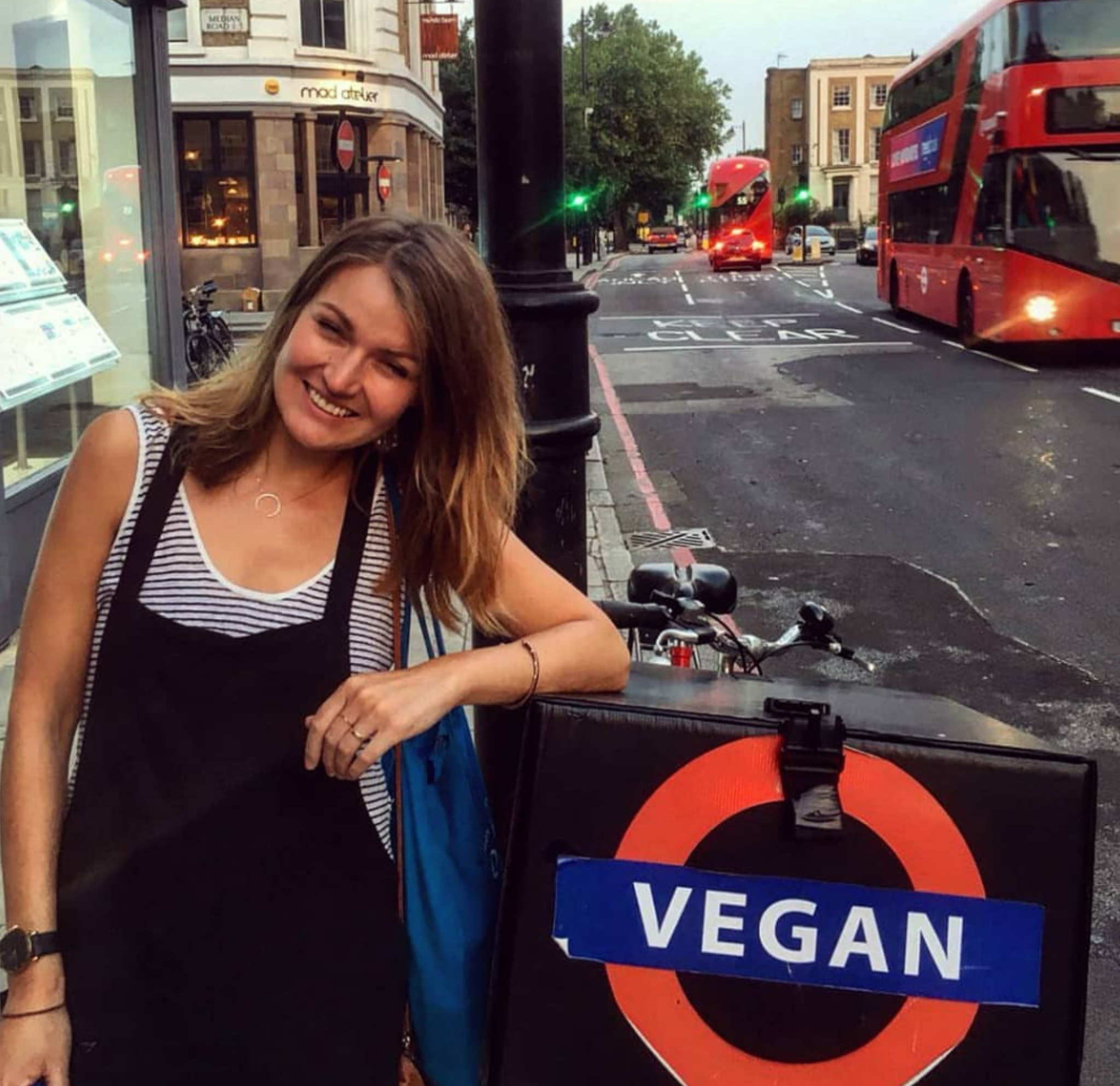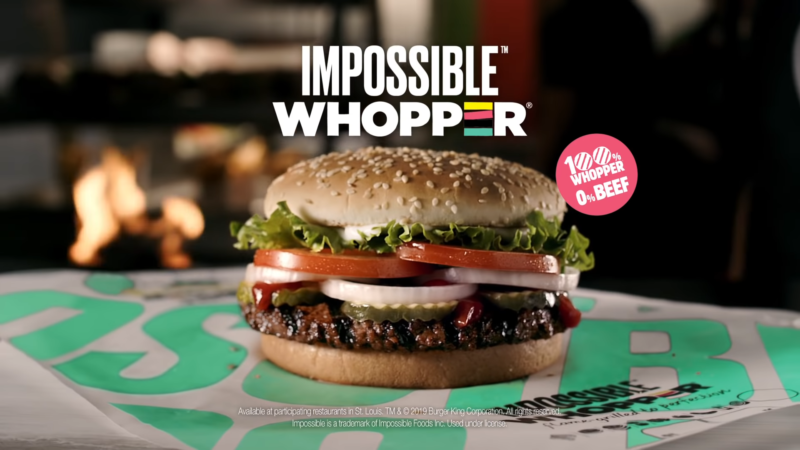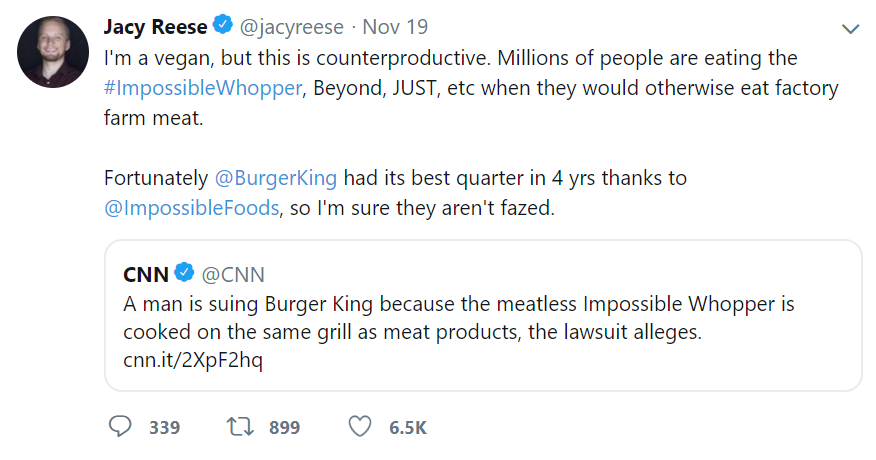A few weeks ago, the site Plant Based News Instagrammed the new vegan burger at fast food chain Burger King, declaring “Wow! Impossible Whopper Is ‘One Of Burger King’s Most Successful Launches In History’ 😮 🍔 – Have you tried it yet? 🌱” Here are just a few responses from vegan followers:
Made on the same grill as meat patties, freaking DISGUSTING 🤢
How much sodium does that burger have
Make your own seitan, don’t empower fast food chains like they’re doing us a service. Remember they are the bad guys
Are you kidding me??? DO NOT promote this garbage! This is still processed food, not to mention the rest of the menu that is factory raised beef and chicken. Can’t believe my eyes! EPIC FAIL!
Let’s not get confused this is a plant based burger not vegan.
And there I was thinking that traditional meat-based chains offering more animal-free options was a good thing. What’s going on?
According to surveys by Ipsos Mori, the Food Standards Agency (FSA) and the National Centre for Social Science Research (Natcen), the number of people identifying as vegan in the UK quadrupled between 2014 and 2019. With around 600,000 people now shunning animal products, vegans make up 1.16 percent of the population. Plant-based eating is becoming increasingly mainstream in response to mounting evidence that meat and dairy consumption is harming the environment, our health, and the welfare of other animals. In fact, vegans and vegetarians are expected to make up a quarter of the British population in 2025, with just under half of all UK consumers expected to be ‘flexitarian’. You can now not only get a vegan Whopper but a vegan Gregg’s sausage roll (if you get there before they sell out) or a plant-based Subway, with a side of vegan hash browns. In the last 12 months, McDonald’s has seen 80 percent uplift in customers ordering vegetarian options, leading the corporation to launch a vegan McNugget option for their “vegetarian, vegan and flexitarian customers.” What a time to be alive! Yet read the comments on social media and you’ll notice that people aren’t happy. No, not just Piers Morgan and the army of indignant carnists: it’s mostly vegans who are kicking off. A number of vegans are worried that as more people adopt plant-based living, the moral values integral to the movement are being diluted.

While writing our book The Clean Pet Food Revolution, I spoke with one of the original founders of ethical pet food start-up Wild Earth, Ron Shigeta. Ron believes that the challenge for any social revolution is that when the “true believers” have to hand their idea over to the masses, that idea changes. And sometimes it changes in ways they may not like. He explained, “It doesn’t belong to them anymore. Sometimes, the true believers feel sad about that. But the beautiful thing is that to win, it has to be for everybody.” Vegans need to be willing to relinquish control, to compromise on the ‘purity’ of our ideals, if we want the movement to grow and evolve. Because to increase the number of people choosing plants over meat is to exponentially increase the impact we have on animal suffering. Your Impossible Whopper might be tarnished with a bit of meat juice (“freaking DISGUSTING”) but it still represents a win for animals and the planet.
Don’t get me wrong, I’m all for supporting small ethical vegan businesses and producers too. Not only are these companies dedicated to animal welfare, sustainability and/or health, but when there are more varied and high-quality animal-free products on offer, people are more likely to stay vegan. Nonetheless, providing existing vegans with more options isn’t going to help more animals. Our priority should be to provide non-vegans with meat alternatives that they don’t have to actively seek out in organic stores or online, or pay through the roof for. It’s a lot easier to bring vegan food to the meat eater than to bring the meat eater to the vegan food. Suing Burger King for cooking your vegan burger on the same grill as the meat ones, as Phillip Williams did in November this year, is detrimental to the democratization of vegan options and, well, it makes us all look crazy. That can’t be a good thing for our movement. Jacy Reese, author of The End of Animal Farming, sums it up neatly on Twitter:
Of course, the Impossible Whopper is also problematic because Impossible tested on animals in order to get FDA approval of heme, their patented novel ingredient (the part that ‘bleeds’ in the burger). They killed 188 rats, causing uproar in the vegan community and a damning response from PETA. In a New Yorker article this year, the company’s nutritionist Sue Klapholz explained,
“Our mission was too important not to do the animal testing, but Pat [Brown, founder of Impossible] and I would never want to do it again. Our youngest son had a pet rat, and they’re very smart animals that like to have toys. I wouldn’t even swat a mosquito — I’m that kind of vegan. The protest was personally shattering to me, as a longtime PETA supporter.”
Do I think it’s right that Impossible tested on animals to produce their vegan burger? Of course not. But they did, we can’t change that: and now that burger is saving many thousands of animal lives. So yes, it still has my support.
The problem is, when we vegans act outraged at the idea of tarnishing our ethical bank statements at McDonald’s or Burger King, or on animal-tested plant-protein, we’re ignoring the obvious fact that these big chain plant-based products aren’t aimed at us. We’re failing to see the bigger picture. If just 0.01 percent of regular McDonald’s customers switched from chicken nuggets to chick’n nuggets, the number of birds saved would be staggering. And if vegans do suck it up and decide to buy their meal there, they’re encouraging greater availability of these options or maybe inspiring a friend to try a meat-free Maccy D too. It’s true that Burger King’s sales of meat-based products have also gone up since they offered the Impossible Whopper, but it’s been shown that these sales are simply displaced from other chains, rather than being new ones. Meat eaters are accompanying their vegetarian friends to Burger King instead of eating at KFC (which currently has no vegan options – although this is soon to change).

As for those vegans who attack ‘junk food’ plant-based options as unhealthy and processed, they’re willfully missing the point. They might not personally like these products but vegan junk is part of a much bigger mission to break down the stereotypes around plant-based ‘rabbit food’. Greasy Cheeze burgers and loaded jack fruit fries show meat eaters that vegan options don’t have to be all salads and beans. They can eat hot dogs, tacos and mac ‘n’ cheese just as they always have, without meat, but also without the stigma that unfortunately still comes with eating ‘vegan’. Why on earth are we trying to preserve that stigma?
Nowhere is this blind faith in meat eaters’ potential to switch to ethical veganism more evident than in the bizarre vegan organisation ‘Clean Meat Hoax.’ Clean or cell-based meat is real meat grown from cells taken from animals, without harming them, in an effort to provide a more ethical, sustainable alternative to factory-farmed meat. Clean Meat Hoax believe that cell-based meat is being used “to attack animal advocacy and to strengthen the meat industry’s long-term strategy of creating a diverse “protein market” that includes meat from live animals.” Convinced that cell-based meat is a Big Ag conspiracy, they are attacking an innovation that promises to end the worst horrors of factory farming. They tear apart the companies creating cultured meat, accusing them of being capitalists in it for profit alone, for “selling out” to the big meat producers. Having co-authored a book with one such ‘evil capitalist’, I’m astounded at how off-the-mark this accusation is. Ryan Bethencourt is founder of Wild Earth, a vegan and cell-based pet food company, and of biohacker lab Indie Bio, which has helped a number of biotech companies aiming to end industrial animal agriculture. I got to know Ryan well over the last year and it’s inconceivable that his motivations are anything other than ethical. When we Skyped, he’d constantly stop to tickle the shelter dogs he was fostering with Rocket Dog Rescue and, in our book, he movingly describes the experience that turned him vegan, a harrowing episode where, as a young boy, he witnessed a pig being slaughtered. His mission is, and always has been, to create a better world for animals. Similarly, Josh Tetrick, founder of Just (originally named ‘Hampton Creek’ after his dog) initially decided to concentrate on making cell-based chicken because, as the most farmed animal, this would lead to the biggest reduction of animal suffering. Just’s Eitan Fischer explains the company’s focus in Shapiro’s Clean Meat:
“If you can think of anything else I could be doing to prevent over a million life years of suffering per hour, let me know.”
Yes, these companies need to make money, but so does every small vegan business. That doesn’t undermine their ethical credentials. That’s not to say that the morality of consuming a product that still commodifies animals, however ‘humanely’, isn’t a complex issue; it’s one I’ve explored in the past. But even if you feel personally uncomfortable with eating cell-based meat, I cannot fathom the notion of actively fighting against it as an alternative for others. Once cell-based meat companies are able to scale up, a single cell from one single turkey could turn into enough muscle to manufacture over 20 trillion chicken nuggets. But no, you’d rather wait as factory farming continues to breed and slaughter billions of animals year-on-year, because you don’t think the proposed alternative is ethical enough?
Clean Meat Hoax think that without cell-based meat, people will be forced “to choose between universal veganism and the certain destruction of the earth by animal agriculture”. But we’ve been told by scientists that we have to dramatically reduce our meat consumption now or suffer dreadful consequences and I don’t see “universal veganism” happening any time soon: despite recent growth, we still only make up less than 1.5 percent of the population. While people are eating more plant-based food, most of them are still eating meat too: the reality is that society isn’t suddenly going to have a moral epiphany and erase centuries of speciesism. Admittedly I’m writing this on the morning of the Tory re-election, at a moment when my faith in humanity is at an all-time low. But we’ve just re-elected a leader who refused to even take part in the election leader’s climate change debate, hours after the UN published a report warning that countries need to increase their carbon-cutting efforts five fold to avoid climate chaos. That “certain destruction of our earth by animal agriculture” is here, yet few people care enough about animals or the planet to go vegan or even vegetarian. For many, meat is too big a part of their lifestyle to conceive of that sort of change. We all have a friend who expresses their horror at your description of the massacre of chicks in the egg industry, then Instagrams her roast lamb two days later. To those people (which is still most people) strict veganism isn’t going to be a serious option any time in the near future, however many scientific reports predict our impending doom. But choosing a cell-based burger that tastes the same, costs the same, looks the same, minus the animal slaughter and environmental damage? Why wouldn’t they? We have to make it easy for meat eaters and we have to compromise in the name of greater, achievable change.

When I started work on The Clean Pet Food Revolution I thought we were writing a ‘vegan’ book: a book about reducing animal suffering, saving the planet and habitats, and improving the health of our pets. Yet almost everybody we interviewed, people working to make pet – and human – food more ethical and reduce harm to animals, had come under attack at some point from vegans. Ross Lamond, who makes cricket-flour dog treats, receives a steady barrage of abusive comments on his social media (a choice example being “You fucking learn how not to be speciesist and turn animals into products”). He’s bemused at why vegans are attacking a tiny startup creating eco-friendly dog treats, especially as a huge part of his motivation is to end vertebrate factory farming. No, eating insects isn’t ‘vegan’, but why waste your energies attacking someone who shares a bigger common goal? Mike Selden, founder of Finless Foods, a cultured seafood company, was extremely reluctant to call himself ‘vegan’, even to me. He explained,
When I was vegan, I would give people food that I made, and they’d have a bite and say, “It’s good!” So, I’d ask, “Do you want more?” to which they’d reply, “No, no, I’m not vegan.” But you liked it! I think when people hear those words, they just think, “Oh, I’m not vegan so it’s not for me.”
We need to stop perpetuating this exclusivity. Last week, my friend admitted to me apologetically, “I’m really only 90 percent vegan”. I wanted to cry: when did I become the vegan police? Why did she feel that 90 percent wasn’t good enough to join the club? In setting up these impossible standards of ‘veganism’, our movement is cutting itself off from the society it presumes to change and simply talking to itself. We need to stop getting hung up on ideals when there is real change to be had right now. The immutable moral dogma expressed on social media and by groups like Clean Meat Hoax only makes veganism more unobtainable for the masses, more exclusive and alienating, at a time when we have an opportunity to draw in a huge diverse following. As Mike said in our interview, “As long as we’re trying to sell food based on morals, we’re never really going to change the world. It’s always going to be virtue signaling for the rich, and really not for anybody else. If we want to make mass change, we need food that competes on its own metrics, the metrics that people actually buy things on.” People want to eat less meat for environmental reasons or health reasons as well as for animal ethics, and that’s okay. Maybe they even want to eat cell-based or plant-based foods because they taste better! Let’s not slam the door in their faces, but embrace this: it’s just possible that the ethical awakening will come later. Even if it doesn’t, the animals that don’t get bred into suffering and slaughter won’t care why they were saved.


